Four years of People Powered Retrofit: What have we learnt?
We often get asked within the industry on our key lessons learned from setting up People Powered Retrofit. Over the years, our responses have changed and evolved as retrofit has progressed. In this article, our operations manager Immy Sykes reflects on what she has learnt over the past four years of working at People Powered Retrofit and her hopes for the future. Immy joined our team in 2022, just as we became our own independent Community Benefit Society, and has supported on the development of our work.
Four years ago, People Powered Retrofit progressed from a funded project to community benefit society operating independently and as a professional organisation. Our mission was to develop a service that helped people in Greater Manchester and the Northwest tackle retrofit in their own homes, giving them the tools, knowledge and expertise to make decisions for themselves and empower tangible action in the face of the climate crisis.
Within that time, we have grown to a small but deeply productive team, and wrestled with the many challenges that new organisations often need to overcome. We’ve adapted, pivoted, and reflected. From developing our membership and refining our focus to building partnerships and supporting a talented team, the journey has been both complex and rewarding
So what have we learnt?
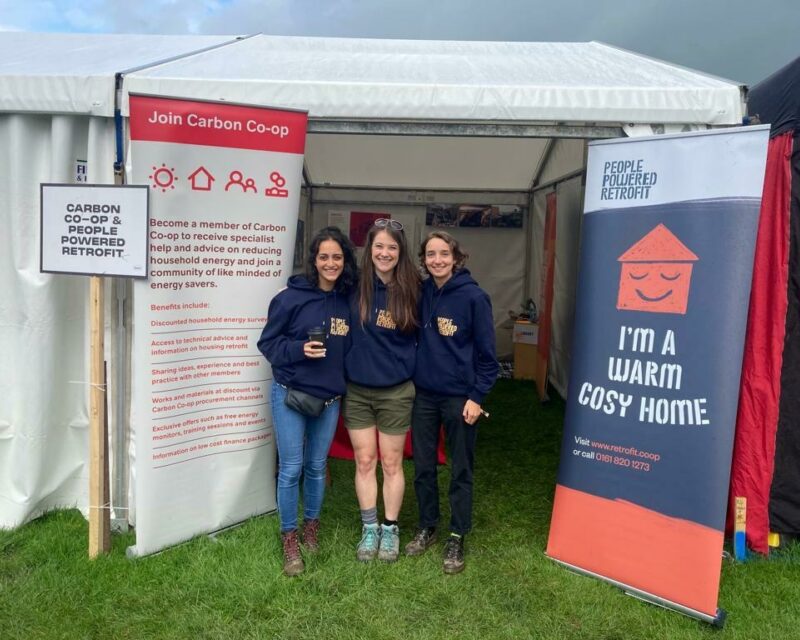
Think about your members
In 2021, we raised start-up capital for the social enterprise using a Community Shares offer model. At the time, we had witnessed huge demand for our services but had little capacity to meet it. Raising capital ethically made a lot of sense for us: it removed the need for external funding, for extractive and disinterested shareholders and it fitted closely with our mission to empower communities with the tools to tackle the challenge of retrofit.
We did well in our share offer, attracting 350 members, and since then we have developed a knowledgeable and experienced board who help to represent our members and keep us accountable. However, we have learnt that a share offer, especially one using a social investor intermediary, doesn’t always attract members in total alignment with our vision. Research we conducted in 2024 demonstrated that while some members were deeply committed to seeing retrofit proliferate (especially locally) and motivated to invest on that basis, other members considered themselves more as ethical investors. This is not necessarily an issue in itself, but it does highlight how crucial communication and expectations management is. Different members bring varying perspectives and expectations - recognising that early and planning for it can help ensure that you’re getting the best out of a membership.
Setting up a community benefit society with ambitious aims can mean your attention is pulled in lots of directions - especially in the early years. We’re still steadily working on developing our membership and ensuring we are creating a meaningful space for all members.
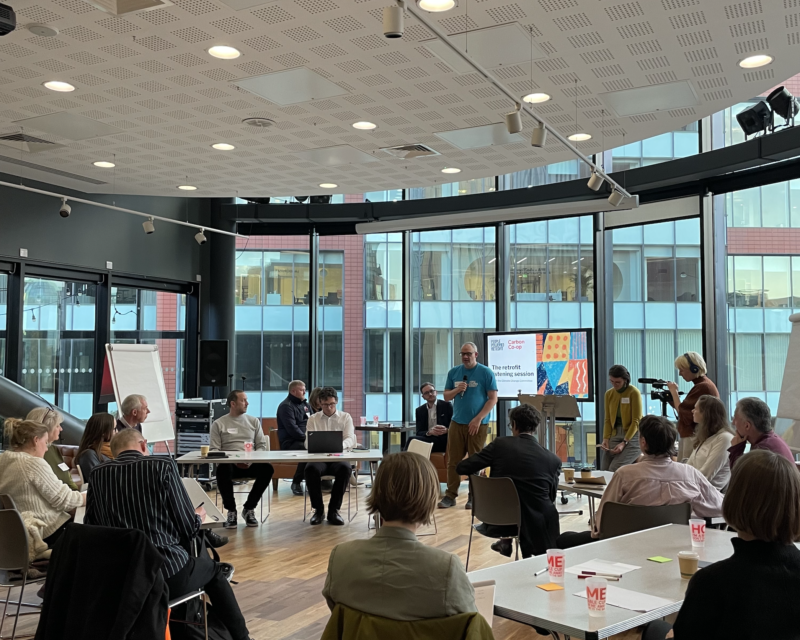
You can't do everything
Particularly in mission driven organisations attempting to tackle complex or ‘wicked’ problems - such as those in climate change and retrofit - it is easy to get caught up in the broader picture. Our employees are passionate about the issues we are focussing on, the communities we are serving are asking (and in some cases, needing) more from us, and there are multiple avenues opportunities can take us down. Saying no can feel both impossible and irresponsible at times, but we have learnt that it is a crucial part of being able to actually do good work.
It’s important to start small in your offering, keeping a focus on your ‘why’. Developing services that solve a specific problem make it much easier to communicate the boundaries of, and ensure you’re actually helping people - rather than burning out your team and disappointing clients and customers later on. Lay the groundwork early, keeping your strategic priorities at the forefront of conversations and decisions with your team. Blurred, competing or shoehorned priorities end up not just being unsustainable, but can derail the entire focus of the organisation.
Early in our set up, we were often asked how People Powered Retrofit planned to ‘scale’, and how we intended to serve more than just the ‘able to pay’ market. Retrofit is a complex and burgeoning industry in the UK, still deeply entangled with issues of social inequality, trust, and a lack of knowledge, skills and political willpower. We are never going to be able to solve all of those things at once, and honestly - likely never intend to. Our first responsibility is to illustrate that community-based retrofit can work, and that it is sustainable, practical and replicable with other like-minded organisations. We do this by sharing our knowledge and skills around retrofit.
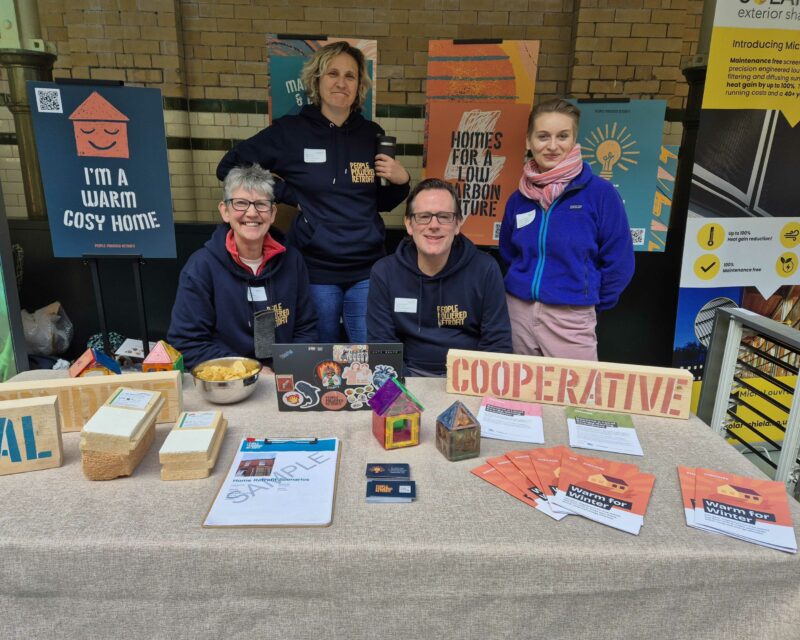
Collaboration is key
Speaking of sharing, we have learnt the power of collaboration across sectors, industries and organisations to drive impact - as long as we remain clear on our objectives. In practice, this means implicitly understanding the strengths within the team - our technical expertise, local community knowledge etc - keeping priorities in focus to ensure that the organisation is not being pulled into distracting projects, and working with others who can bring new learnings, insights, and experiences.
Collaboration is best achieved when alignment is the goal, rather than pure expansion for expansion’s sake. This year, we’ve launched a pilot into a Community of Practice that attempts to distill both ours, and other partner’s, learnings into a shared and active network of organisations and practitioners.
We have also worked closely on a European project to build knowledge in one-stop-shop set ups, hoping to increase base knowledge in these community set-ups and drive further innovation. One of the outputs is a free e-learning course, with contributions from various other One Stop Shops sharing their own experiences and best practices. If you’re interested, please take a look: https://elearning.energycommunityplatform.eu/course/one-stop-shops-for-citizen-led-renovation/
Our work has so far shown that no business or organisation holds the keys to the answers. Instead, we have to work collectively and combine expertise to tackle the challenges together.
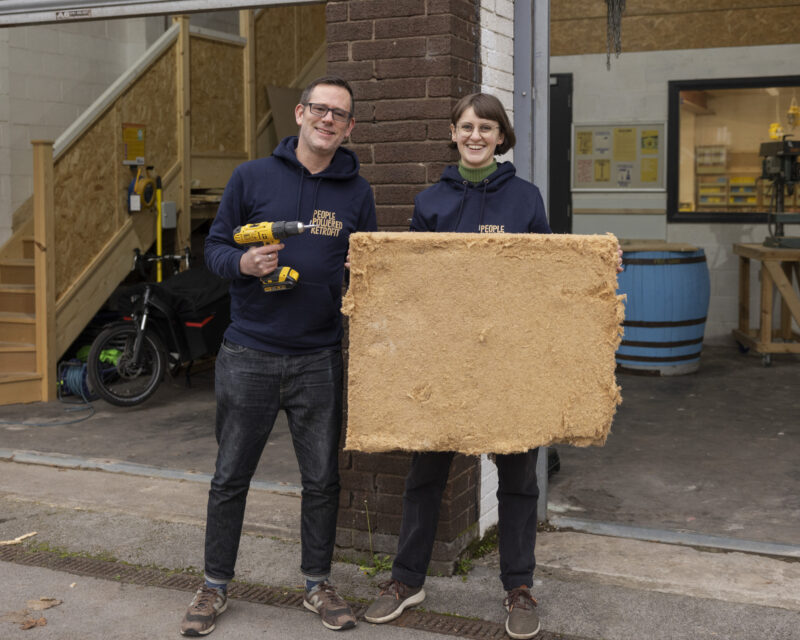
The right people in the right role
Working with lots of other community-based organisations, we start to see patterns emerging. One of the biggest challenges facing smaller businesses like ours is attracting and retaining talented people to carry the mission forward, and knowing what to do when things go wrong in their teams.
Your team is your biggest asset in a community organisation, and developing a rewarding culture is paramount to ensuring you’re able to build towards your mission. In a sector like retrofit, where the skills needed are both highly technical and deeply relational, finding the right balance of people, values and capabilities can be complex to negotiate.
Often forgotten about in fancy presentations on ‘mobilising retrofit’, here are a few key lessons we have learnt.
Clarity: Being clear about what skills are required and what the boundaries of roles are right from the very beginning. Employees should understand the expectations of their time and energy before they’re expected to meet it.
Plan in reviews: Regular reviews with your team’s job description can help you identify resource or capacity gaps and prevent scope creep. In small organisations where employees often wear many hats, you want to avoid instances where employees are taking on responsibilities they are under-skilled or under-supported for.
Technical skills ≠ People skills: In conventional workplaces, being technically good at a job often comes with the reward of managing a team, meaning a lot of paper work to complete and burn out. Technical skills don’t automatically translate to people skills, so begin to see the progression pathway for your team differently. Tease out your people skills from your technical skills and value them individually as independent skillsets.
Have the difficult conversations early: If things aren’t going well, have the difficult conversations early. Communicate clearly, discuss options and opportunities for support and improvement. When things fester, they only get worse.
Remember: good systems, clear communication, and well-supported staff aren’t just nice to have. They are essential if you want your impact to be sustainable and…well, impactful.
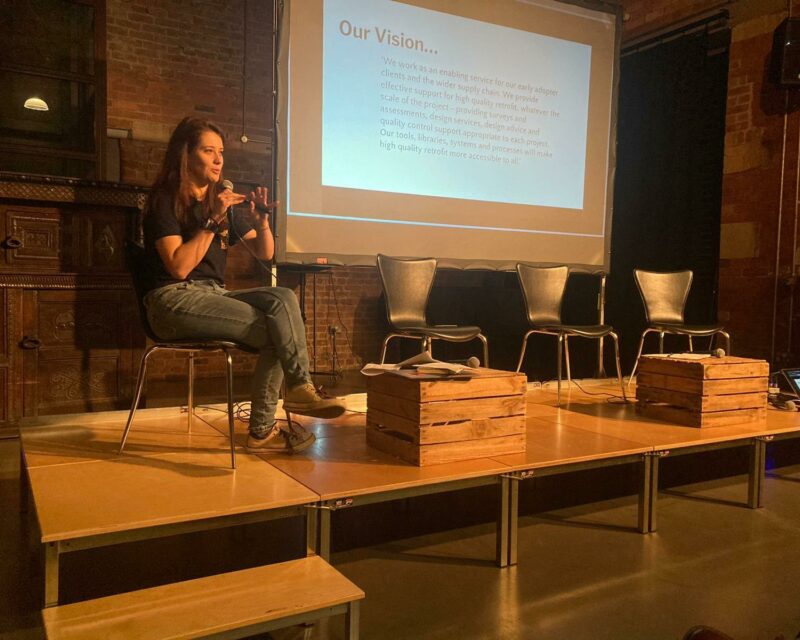
Final thoughts
Looking back over the past four years, I am extraordinarily proud of what we have built and achieved. We haven't always got things right, but we've been able to adapt, learn and change as we have progressed - and for me, that's key to building a strong organisation.
What has stood out is that retrofit is almost entirely about people and relationships as it is about the technical expertise and the fabric of a home. Progress happens through deliberate and concentrated effort and about knowing - and communicating - our limits, while finding support networks to build ideas gradually.
The challenges facing retrofit are sometimes scary and often messy, but they are easier to navigate when we stay focused in our mission and open to learning. As we move into our next phase, we remain committed to strengthening this model, sharing what we know, and helping others build local, practical, community-based approaches to retrofit that can grow and thrive over time.
If you'd like to hear more about our work and the work of our partners, please sign up to our partnership insider newsletter